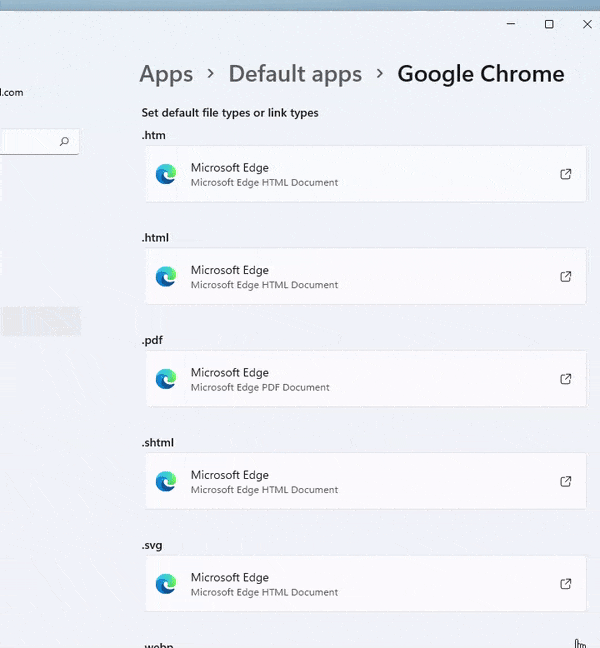
Microsoft has once again shifted the goalposts to make it harder for end users to choose a default browser other than Edge. The microsoft-edge: URI scheme that handles web links from within Windows 11 microsoft-edge:// can no longer be overridden with tools like EdgeDeflector. This means that the same implementations done by Mozilla for its Firefox browser, as well as Brave browser — which is based on Chromium - no longer work.
The developer for EdgeDeflector, Daniel Aleksandersen, noticed that the change following a reported issue on github, came about with the release of Windows 11 build 22494, which is a version of Windows 11 released to Windows Insiders enrolled in the Dev channel, a week and a half ago. Aleksandersen told Neowin "Windows 11 now blocks third-parties from interception microsoft-edge:// links. I don’t have any non-destructive workarounds for this at this time." essentially making it impossible to deflect Edge from being used for OS level links. Aleksandersen further notes:
Windows has not blocked third-parties from registering protocol handlers, but it refuses to show them in the UI. It also ignores the setting if you change the default in the system registry. So, your choices are limited to Edge, Edge beta, and Edge dev.
This is evident when going to Apps > Default Apps > Choose defaults by link type and then trying to change the MICROSOFT-EDGE link type, you can only select Edge.
Aleksandersen goes into far more detail about this change in a blog post.

This will leave end users with no option other than to change each file type manually. The machine I am writing from is running Windows 10 21H2 (19044.1348) and it is still possible to use EdgeDeflector for the microsoft-edge:// protocol which forces OS level web links to open in the default browser.

Although it is still possible to deflect Edge in Windows 10, one has to wonder if the likes of Mozilla will be challenging Microsoft for the anti-competitive measures the Redmond giant is undertaking. In an email to The Register, a Mozilla spokesperson had this to say about the change:
People deserve choice, they should have the ability to simply and easily set defaults and their choice of default browser should be respected. We have worked on code that launches Firefox when the microsoft-edge protocol is used for those users that have already chosen Firefox as their default browser.
Following the recent change to Windows 11, this planned implementation will no longer be possible.
Aleksandersen further points out in a blog post from last month that vendor-specific URI schemes took off in February 2014 after Google introduced a googlechrome:// scheme for its mobile apps as a way to counter Apple's anti-competitive insistence that Safari should handle certain links on iOS devices.
Of course, it's entirely possible that the decision to make it even harder to choose a default app in Windows 11 could change before it is eventually released to the public sometime in 2022, since Windows Insiders supposedly have a say in the course and outcome of Windows development. We'll have to try to provide feedback through the Feedback Hub and let the Windows engineers know directly how we feel about these decisions. I created a Feedback for this issue, you can upvote or add your comments here.

_small.jpg)
















87 Comments - Add comment